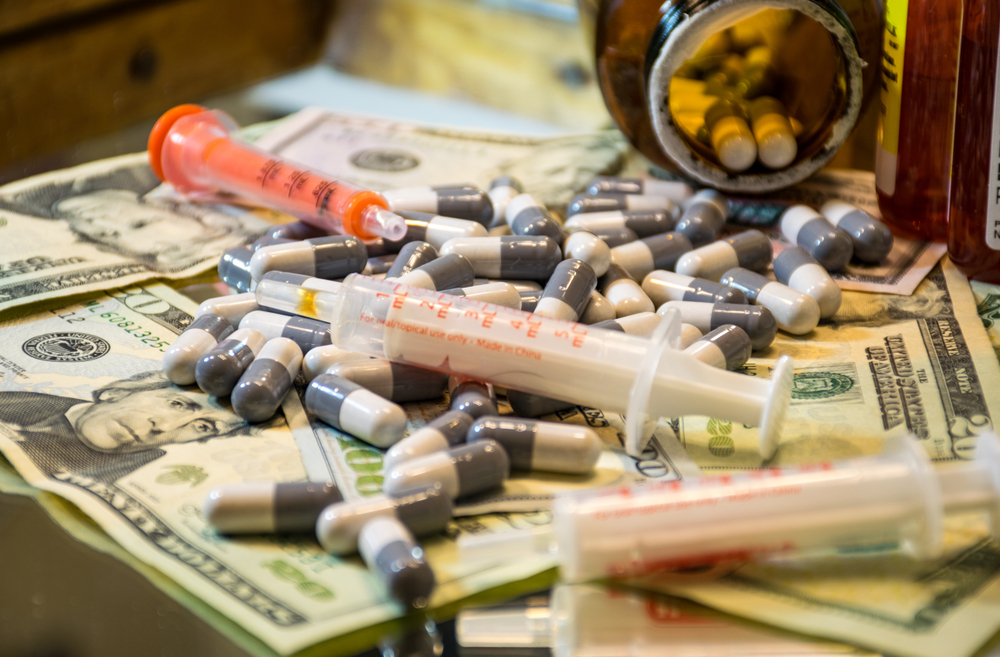“Google news” reports an article from a portal named raffaelepalermonews. The title is "Millions of euros to 32,000 doctors from pharmaceutical companies. The denunciation of the Codacons”, subtitle “The top 10 houses 
The article does not report the publication date but, by publishing it today and yesterday on Facebook, it suggests that it is new. Nothing more fake! It is a copied note from Codacons dated March 18, 2019 entitled "Healthcare scandal: millions to Roman doctors from pharmaceutical companies. Complaint”.
We had debated the subject with several articles, it is enough to mention: "Codacons. The defamation of drug companies' alleged funding of doctors continues” which also contains the links that refer to what we had published.
In what was reported in 2019 with scandalous tones invoking an ordeal there was nothing illegal, in fact everything ended in nothing. As you should know, every year pharmaceutical companies publish, openly and publicly available, the contributions they pay to doctors and scientific societies and research institutes.
On the merits we wrote that "We can make the following considerations: healthcare professionals are indispensable to pharmaceutical companies because they can provide scientific knowledge to pharmacological research, at the same time pharmaceutical companies become indispensable to doctors to whom they can provide resources, which the State does not give, for their research and medical education. It is positive that all this takes place with the utmost transparency to avoid incorrect operations. Then it always depends on the controls, which are what they are, but which should be very careful and strict so that illegal activity is not hidden. Is all this ethically and politically correct? Everyone can give his answer based on his own conscience.
Filippo Rings (Pres. Fnomceo) then declared: «La trasparenza non può ritorcersi contro chi l’adotta, siamo proprio noi medici a volerla e l’abbiamo codificata con l’industria. Ma il fatto che un medico sia pagato dall’industria non può trasformarsi in una presunzione di rapporto illecito».
Coming to the article in question, passing it off as current, it becomes fake news. If this Raffaele Palermo (provided he is real) is in good faith and chooses to open a Telegram channel, Facebook and a blog claiming to be free information would at least check the news it decides to share. And instead Raffaele speaks to the bellies of his followers (fortunately few) without having made the slightest check and without explaining that the news is several years old, and that in any case it is not at all as Codacons told it. Unfortunately we live in a world where facts no longer matter to anyone, as long as a piece of news is "credible" for crowds of subjects to throw themselves upon it like a fish. And the pharmaceutical sector is a nice tidbit to feed to its readers. It's depressing!
Se invece è in malafede è un fatto grave. La libertà di pensiero e parola è sacra, però ha dei limiti in alcune e specifiche circostanze. Una di queste ultime è senz’altro la pubblicazione delle cosiddette fake news, ossia la pubblicazione di notizie false o esagerate, con foto e titoli sensazionalistici per attirare “clic” sulle proprie pagine o blog e – sempre più spesso – guadagnare in base al numero delle visualizzazioni. Un’attività che con l’avvento dei social network ha avuto una crescita esponenziale, soprattutto quando può poggiare su eventi
The Covid-19 pandemic that has hit the world in the last year has paved the way for a wave of fake news that has created many problems both for people who are already frightened and tired of the restrictions, and for those who have found themselves having to manage the crisis at a political, social and health level. Furthermore, the launch of vaccination procedures has only aggravated the phenomenon of disinformation with the spread of countless fake news and conspiracy theories about the effectiveness of vaccines or their composition.
The article reported by the phantom Raffaele Palermo fits into this context.
